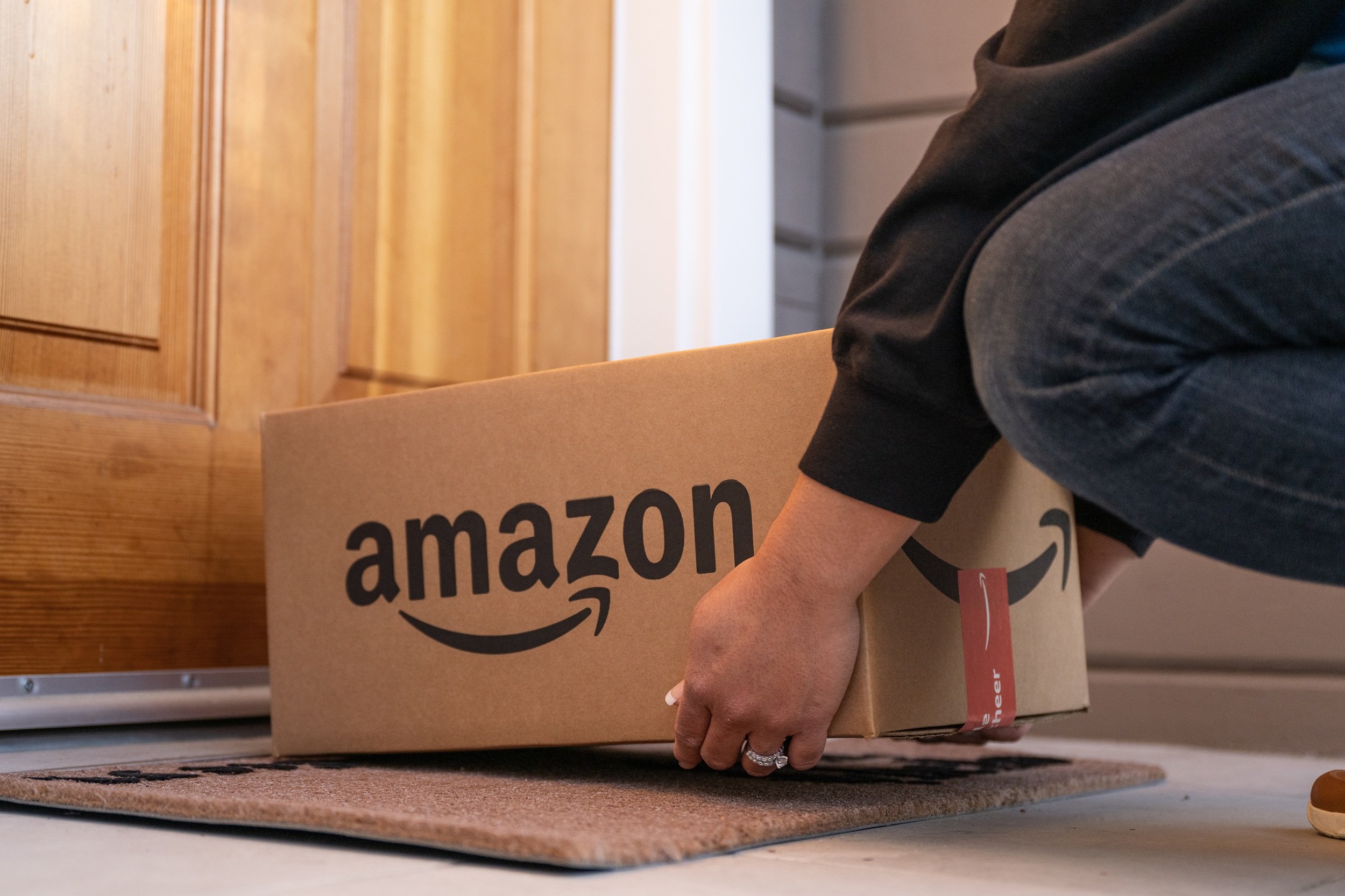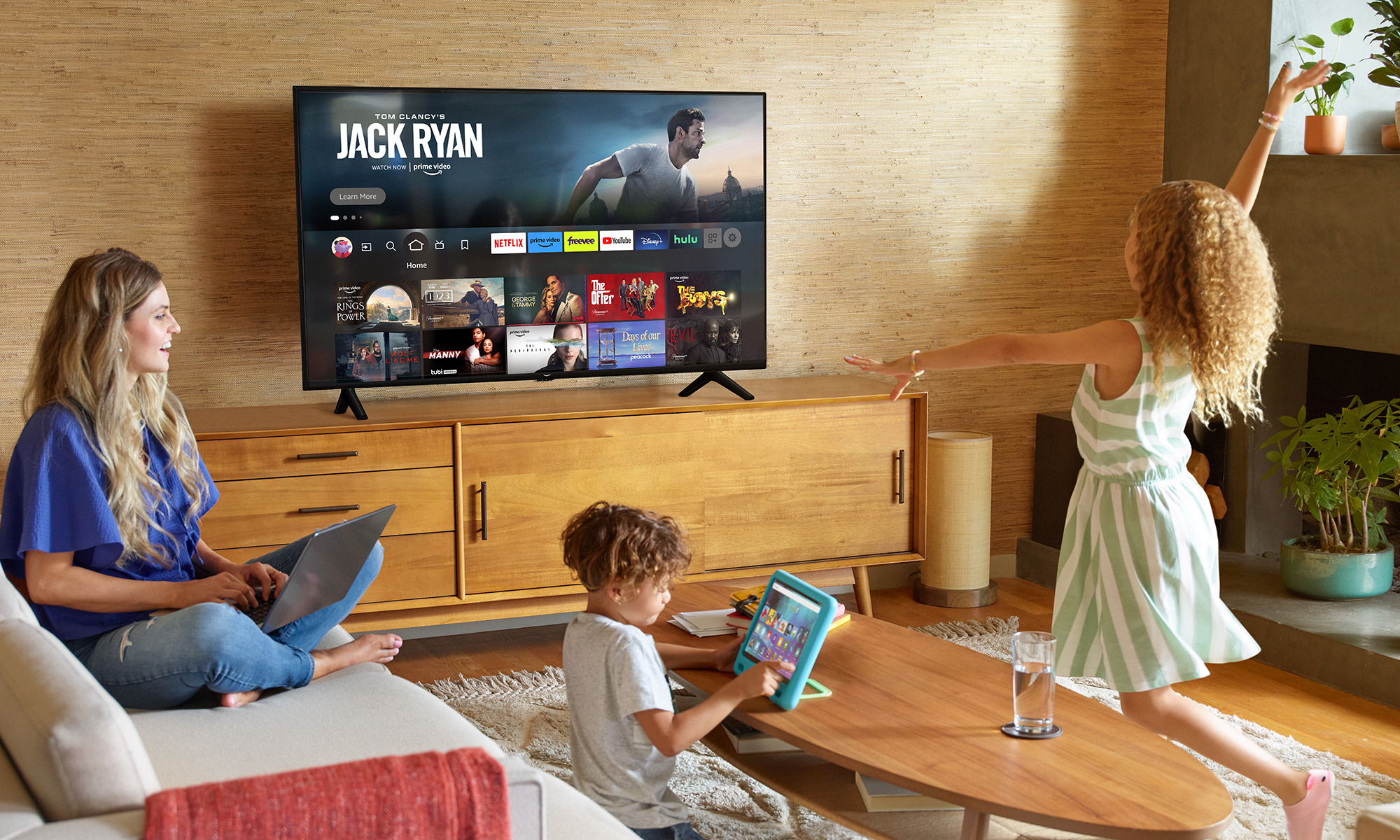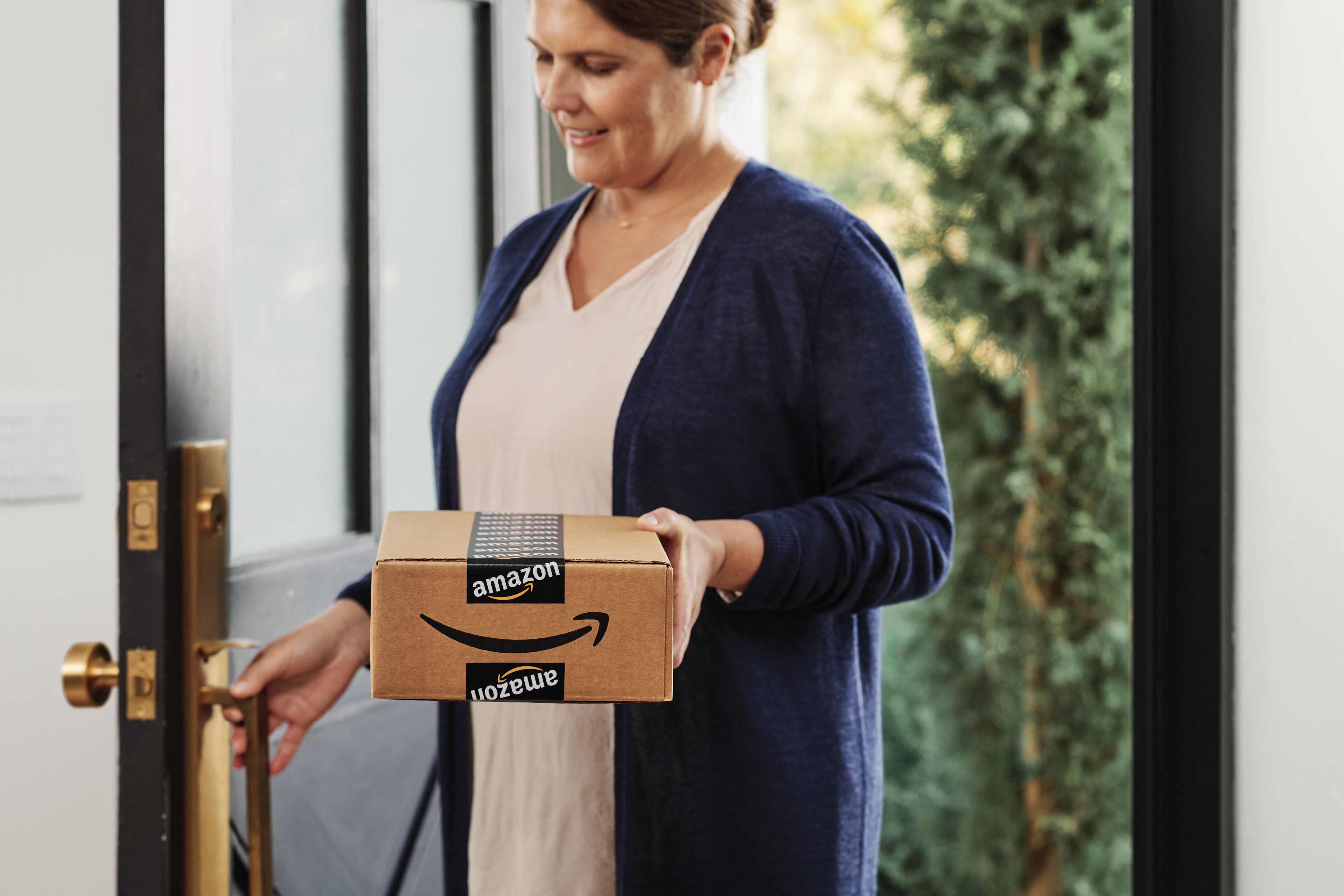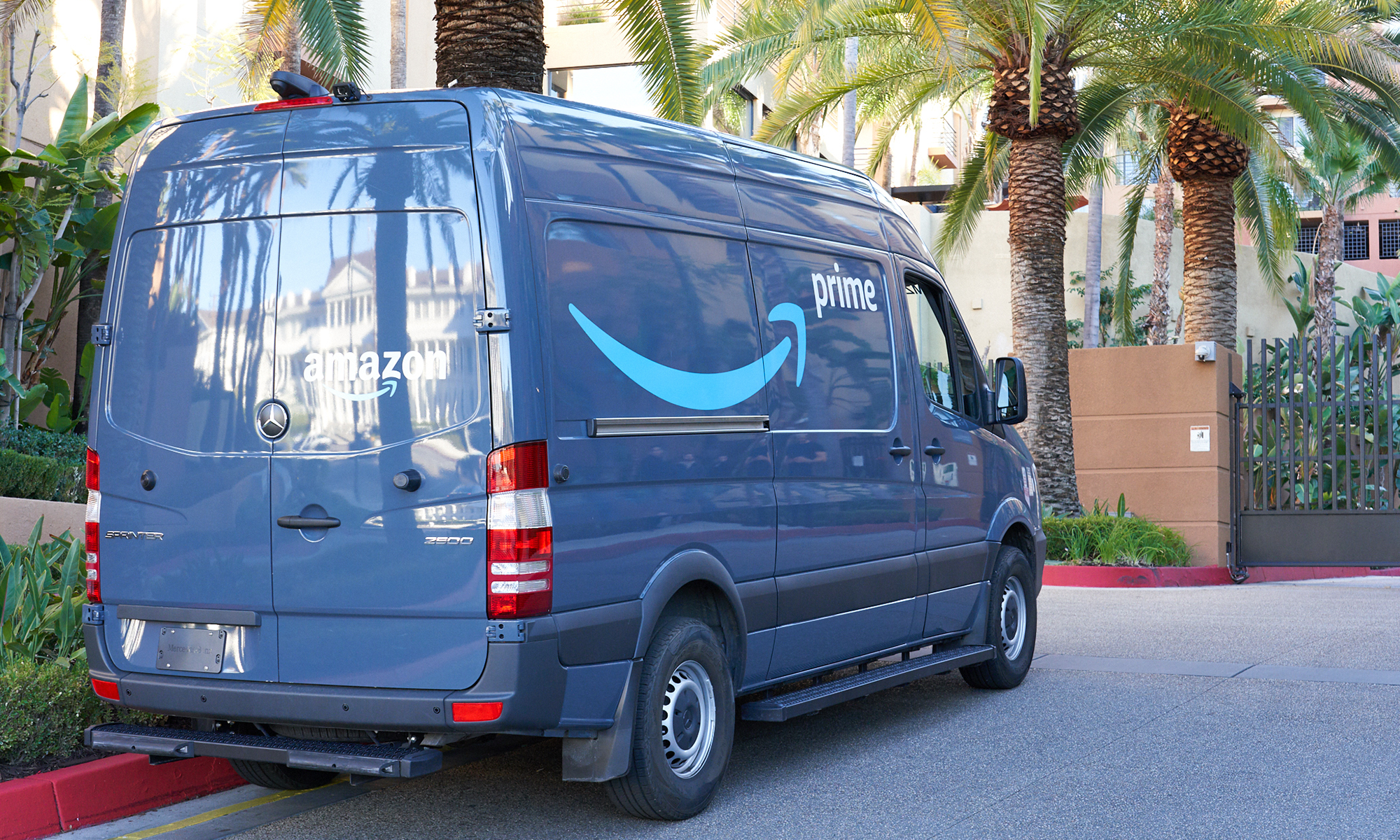In this segment from the Motley Fool Money radio show, host Chris Hill, Million Dollar Portfolio's Jason Moser and Matt Argersinger, and Supernova and Rule Breakers' David Kretzmann dig into the latest news in retail.
Jeff Bezos and company keep steamrolling ahead, and not just in the United States. The Fools talk international, the Echo Show, Target's (TGT +0.66%) upgraded guidance, and e-commerce more broadly. Plus, they discuss the direction of commercial real estate, and one company picking up a fair amount of the space that was left empty with so many retailers shrinking their brick-and-mortar footprints.
A full transcript follows the video.
This video was recorded on July 14, 2017.
Chris Hill: From big banks to big retail, in this case Amazon (AMZN +0.16%) and Target, Amazon Prime Day resulted in the biggest single day of sales ever for Amazon. This comes the same week that Target CEO Brian Cornell raised guidance for the retailer, citing higher traffic in their stores. Matty, let's start with Amazon. Forget Black Friday, forget Cyber Monday. It really does seem like Prime Day is the most important day for them.
Matt Argersinger: Right. Based on the expected growth rate of 60%, Amazon probably pulled in almost a billion dollars. Not bad for a random Tuesday in July. No, this has become a big event. It started out a couple years ago as, "It's the 20th anniversary of Amazon; let's have some special discounts for Prime members."
Hill: And by the way, it didn't go that well.
Argersinger: No, not initially. I remember the site being down for several hours during that first time they did it. But it's now become this phenomenon. Of course, for Amazon, it really is about getting people to join Prime, experience what they can get on Prime. And for me, I'm really watching how people are interacting with Amazon Fresh and the household-staples part of the business. I think Amazon's goal is to get more and more people into that, realizing that's how they can steal a lot more market share from grocery stores, et cetera.
David Kretzmann: Yeah, I remember in previous years, other retailers, I think Wal-Mart (WMT +0.23%) and Target included, tried to have their own competition against Prime Day on Prime Day to try to steal some of that share from Amazon, and that didn't really happen this year, but I'm just thinking back to the first quarter of this year, where Wal-Mart's online sales grew 69%, Target's online sales grew 22%, which pales in comparison to what Wal-Mart and Amazon are putting up. I would be curious to see what those online numbers look like for retailers like Wal-Mart and Target coming up.
Hill: Again, you go back two years to when they first did this, as you said, Matty, the site was down, they got some criticism, and I think it was fair, in terms of a little bit of bait-and-switch going on, in terms of the products they were promoting that sold out very quickly, that sort of thing. But Jason, in just two years' time, as we should expect with Jeff Bezos and his team, they've really got it down pat now. You look at what they're promoting this time around; it's very much the Echo, and it really does telegraph where they see that device in people's homes and what it means for Amazon's business.
Jason Moser: Yeah, and the pace they're rolling out in new apps and skills for the Echo, it's very impressive. I really feel like we're going to need to get an Echo show at our house just to test it out, for sheer selfless market research, Chris, I may have to buy one of those and come back and tell you how that thing works. Because I do like the Echo in our house. We have a Dot as well. It's neat to see its functionality. I think the Echo Show gives them an opportunity to incorporate a bit more e-commerce. I think that's maybe one of the holdups there in making purchases with the Echo -- you're not quite sure what exactly you're getting; you can't make that visual confirmation.
But I also think with Prime Day, it's really important to note that this is beyond just our domestic economy. It's very easy for us to look at it from a U.S.-centric perspective. But really, this rolled out Prime Day to 13 countries this year. This is where I think the real opportunity for Amazon still exists. They're investing so much in those international operations, and they're delivering those operating losses today. But remember 10 years ago, that's what it looked like here. So it's not too big of a leap to think that in 10 years, they're going to have a very impressive global e-commerce infrastructure and operation going that could reward shareholders for many years to come.
Argersinger: You could see, as big as Prime Day was, maybe a billion in sales for Amazon, it pales in comparison to Singles Day in China, which is an Alibaba phenomenon on Nov. 11 every year, where they did $18 billion in sales. And I'm just wondering if Jeff Bezos was thinking to himself, "Prime Day, eventually I think could be this worldwide thing where we pull in tens of billions of dollars in sales, and this is just the start of it."
Moser: It's a nice lever to pull!
Hill: In some ways, probably not as surprising that they had this big of a day when you think about what Target did, just in terms of retail, David. Target's news this week, the guidance raise, the subsequent pop in Target's stock, it was almost like a sigh of relief on Wall Street, because for all of Amazon's success, Target is still a big player in this space, as is Wal-Mart, as is Costco. So you look at Costco's recent June sales, Target raising their guidance -- Amazon has a bright future, but these bricks and mortar power players are doing pretty well.
Kretzmann: I think Wal-Mart especially, they've made numerous acquisitions, including Jet.com and Bonobos, another fashion online retailer that they bought within the last couple months. As I mentioned, their online sales in the latest quarter were up almost 70%, which is phenomenal. And they have almost the same amount of items on their platform online compared to Amazon, so they're making a lot of progress there. Target is more treading water, I think, even though their online sales were up 22% in the latest quarter. Compared to what Amazon in Wal-Mart are dealing with, Target is going to have to step up their game, and I think there's still a lot of questions there, even with their slightly raised guidance for this upcoming quarter.
Argersinger: So Target is all excited about their restock program, which is, essentially, next-day delivery service that they're rolling out or testing in Minneapolis. Compare that to Prime, where you get same-day delivery in 5,000 cities around the world, and here's Target, "We're testing next-day delivery in Minneapolis."
Kretzmann: Revolutionary! [laughs]
Argersinger: "We're excited about what this could do for our business." You guys are 10 years behind by now.
Hill: They get a lot of snow up there, though. You can't expect everything the same day.
Argersinger: That's true.
Hill: David, you and I were talking before we started taping today. One of the ripple effects -- and we don't really get into it all that much on this show -- you think about commercial real estate, when we look at the big retail trends, and a lot of well-known retailers closing stores and, in some cases, going out of business. In some cases, all of a sudden, that commercial real estate becomes really cheap. You mentioned something that really surprised me, which is that T-Mobile, of all companies, has opened a thousand locations so far in 2017. How have they done that?
Kretzmann: Apparently they're finding someplace to put those stores. Maybe they're filling up the space that's opening up as all these other retailers and restaurants close up shop. They initially had guided to open a thousand new stores total in 2017. This is coming off a base of 2,000 stores at the end of last year. But they hit that mark earlier this week. By the middle of the year, essentially, they reached that mark, and now they're saying, "We're going to open 1,500 total stores this year." Their existing store base now covers about two-thirds of the U.S., and now this will really help boost their store coverage outside of the main metro areas in the country. This is a company that has, over the past four years, each quarter they've added at least one million new customers, stealing customers from Verizon and AT&T bit by bit. They also have a record low churn rate as of the latest quarter. So, a lot of things going well for T-Mobile. They're in full-on expansion mode.






